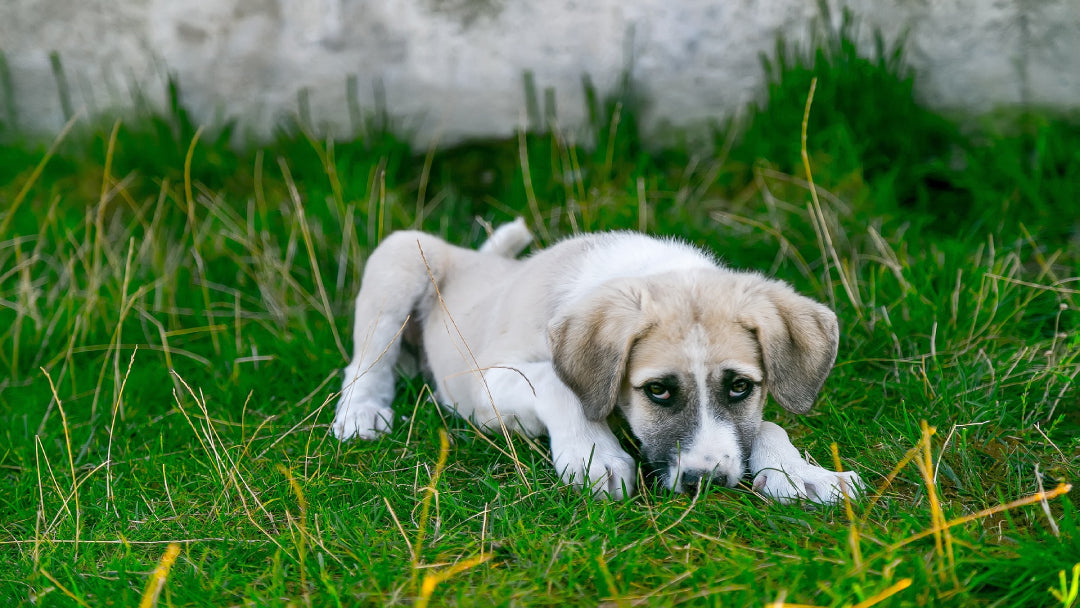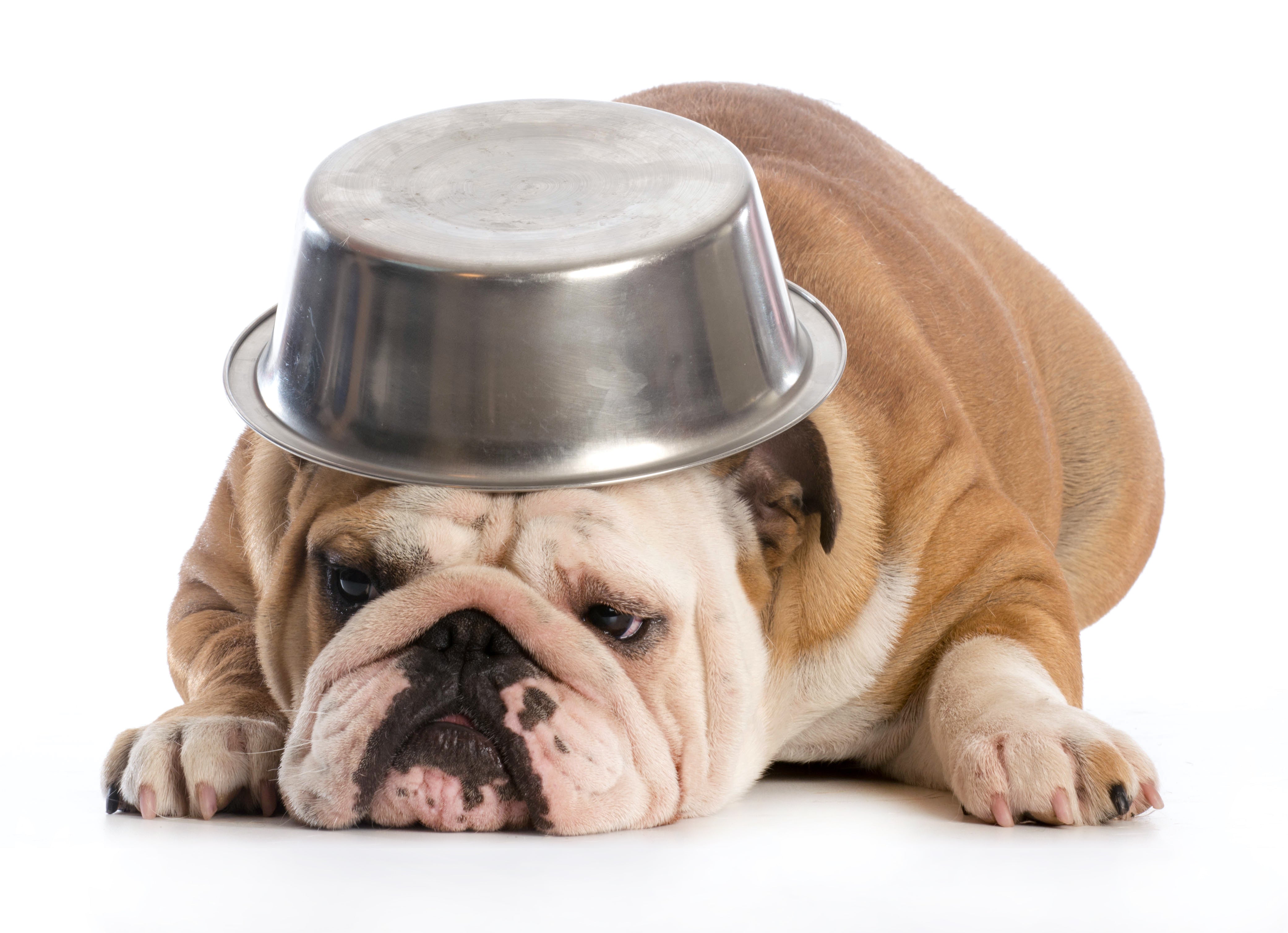It isn't all glory and face licking when you're a dog parent. Sometimes you have to come out of the clouds of being super loved by your canine pal to deal with stuff you'd rather not - like diarrhea. Yes, like us, your pooch can suffer from digestive issues. But since they don't choose their own diet, we must help them fix the problem.
Diarrhea is a common affliction among dogs. Your dog's condition may vary in frequency or intensity, but at some point, they (and you) will encounter it. You can't prevent it from occurring at all, but there are things you can do to limit the frequency. Here, we'll discuss the best home remedies for dog diarrhea.
Related: My Pet has Constipation? HELP!
How Your Dog's Digestive System Works
Your dog's digestive system is unlike ours. While the enzymes in our mouths work to break down our food, the saliva enzymes in your dog's mouth work, instead, to kill bacteria. Then their food moves quickly down their esophagus and into their stomach, where digestion happens. As strong as our stomach acid is, theirs is about three times as powerful, which is why they aren't concerned about chewing their food into tiny bits. Ideally, it takes about 10 hours for your dog to completely process their food from initial ingestion to producing a firm, well-formed stool at the end.
What Causes Doggie Diarrhea
No question, your dog's digestive system is efficient, but sometimes it can experience an imbalance that causes diarrhea. Here is a list of the many causes of your dog's diarrhea in categories.
Food Related Causes
- Food allergies
- Eating something they shouldn't have eaten - poisonous plants or substances
- Ingesting something inedible - toy, etc.
- Sudden changes in diet
- Food intolerances
Intestinal Infections
- Worms - These can damage your dog's gut lining
- Parvovirus - This can cause severe diarrhea
- Giardia - Small parasites that attack their gut lining
- Bacterial infections - Like Salmonella or Campylobacter
Other Possible Causes
- Colitis - This is inflammation of the large intestine
- Pancreatitis - Inflammation of the pancreas
- Hemorrhagic gastroenteritis (HGE) - Condition that causes severe vomiting and diarrhea
- Intestinal blockage - A foreign body blocking their gut
- Liver disease
- Inflammatory Bowel Disease (IBD) - Chronic inflammation of the intestines
- Exocrine Pancreatic Insufficiency (EPI) - This condition prevents your dog from digesting their food properly
- Antibiotics or other medications
- Stress or upset
Related: My Pet is Having Trouble Peeing, What Do I Do?
Does your dog have diarrhea? We can help. Check out our high-quality oral pet supplements and remedies for a variety of issues. Visit Healthy Paws Herbal Labs to learn more.

Healthy Stools
Now that you know what can cause diarrhea, you should know what exactly constitutes a healthy stool from your dog. The consistency and color of their stools can tell you if there's a problem with their health.
A perfect dog stool should be chocolate-colored, with a cookie-dough consistency, shaped like a compact log, and easy to pick up. If their stools are hard and round, this could indicate dehydration or constipation. Several infographics are available online to show you what the various colors, consistencies, and contents mean for your dog's stools. But here is a rundown of them:
Color
- Chocolate - Normal
- Brown with white bits - Could mean tapeworms
- Green - Too much grass eaten or gallbladder issues
- Orange/Yellow - Possible liver issue
- Black - Possible bleeding in the upper GI tract
- Red Streaks - Blood in the stool
- Gray - Possible pancreatic or biliary issues
Size & Content
The size of the stools should coincide with the amount of food they're eating. If you see mucus in their stool, this could mean a problem with their colon. Too much grass in the stool could indicate gastric issues or stress. And if your dog is losing hair or licking themselves a lot, there may be a lot of hair in their stools.
If your dog has diarrhea, it should only last a few days of treatment. If it continues for an extended period, or if there is blood or mucus in the stools, contact your vet.

Warning Signs
If your dog has diarrhea but seems well otherwise, then use our at-home remedies. But if your dog is showing any of the following signs in addition to diarrhea, contact your vet immediately.
- Vomiting
- Weakness
- Blood in stool
- Lack of appetite
- Stomach aches
- Excessive drooling
- Signs of dehydration
Best At-Home Remedies
If your dog's had diarrhea for less than 24 hours, here are things you can do to resolve the issue.
- Try liquid suspensions like our Poo Poo Problems: Diarrhea Relief. It's a 100% vegan, broad-spectrum CBD hemp product with all-natural ingredients and third-party certified for purity and potency.
- Make sure they get plenty of water to drink to replenish the fluids that are being lost.
- Let them have plenty of rest. No heavy activity until they are feeling up to it.
- Consider a 12 to 24-hour fast, but only if your dog is not elderly, a puppy, or otherwise ill. Always provide plenty of water during a fast.
- Give them probiotics to help boost the helpful gut bacteria while getting rid of the harmful gut bacteria.
- Provide small, bland, frequent meals. If you do the 12 to 24-hour fast, when it's time to feed them again, give them plain white rice and boiled chicken (no skin or bones). Other bland meals could be tinned foods from your vet. Once your dog has passed a solid stool, you can slowly re-establish their former diet.
*Don't give them any rich or fatty foods until your dog fully recovers. These could worsen their diarrhea.
Other foods that might make your dog feel better during this time include:
- Peeled boiled potato
- Egg (without any oil)
- Natural yogurt
- 100% pumpkin puree (not pie filler)
- Cottage cheese
Related: Do You Know the Number One Reason Pet Owners Seek Help? DIARRHEA!
Be Thoughtful
When you first notice diarrhea, you may be tempted to give them an over-the-counter medication - but don't. What works well for you can be toxic to your dog. It's best to err on the side of caution in these matters. Inform your vet of what's happening and let them advise you. Remember, dogs are individuals, so what works for one may not work for another. Treat your dog gently during this time and find the right remedy for them.
Are you trying to help your dog deal with any health or emotional issues? Visit Healthy Paws Herbal Labs to see our extensive line of liquid supplements for your dogs.



